Table of Contents
U.S. President Donald Trump’s recent diplomatic efforts have led to a significant win for the U.S. and global oil markets. During his two-day visit to Saudi Arabia in May 2025, Trump secured a major deal: Saudi Arabia’s pledge to increase oil production and contribute more to global supply. This move not only helps Trump lower oil prices but also strengthens his relationship with Saudi Arabia—a country that has become pivotal in shaping global energy markets.
While Saudi Crown Prince Mohammed bin Salman and Trump are expected to discuss a wide range of topics, including arms deals and a civil nuclear program, the most immediate result of their talks was an unexpected boost in crude oil supply. But how did this deal come about, and what does it mean for the future of global oil prices and the U.S. energy market?
In this blog post, we’ll explore the geopolitical dynamics behind the recent oil deal, the impact on oil prices, and what this development means for both Saudi Arabia and the U.S. in the long term.
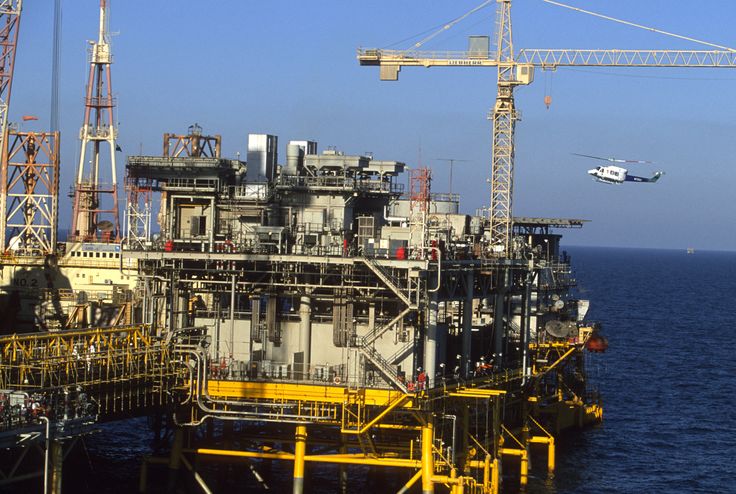
The Oil Market Shifts: Saudi Arabia Steps Up Supply
In early April 2025, a surprising decision was made by OPEC+, the Organization of the Petroleum Exporting Countries and other oil producers. Eight countries within the group, including Saudi Arabia, announced that they would increase oil output by 411,000 barrels per day—a move that far exceeded previous expectations. This decision came at a time when global financial markets were reeling from the ongoing U.S.-China trade war.
For months, the Saudi-led coalition had been careful not to increase oil production too quickly, opting instead to keep supplies tight. However, with Trump pressing for lower oil prices, and U.S. shale oil producers unable to significantly ramp up production without risking shareholder dissatisfaction, Saudi Arabia stepped in to help stabilize global oil markets.
By offering additional barrels of oil, Saudi Arabia not only helps Trump’s agenda of lowering prices but also positions itself as a strategic ally to the U.S. in a volatile energy landscape. The increase in supply serves Trump’s goal of bringing oil prices below $60 per barrel, providing relief for U.S. consumers and the global economy. This move also makes U.S. shale producers less competitive, as they rely on higher prices to turn a profit.
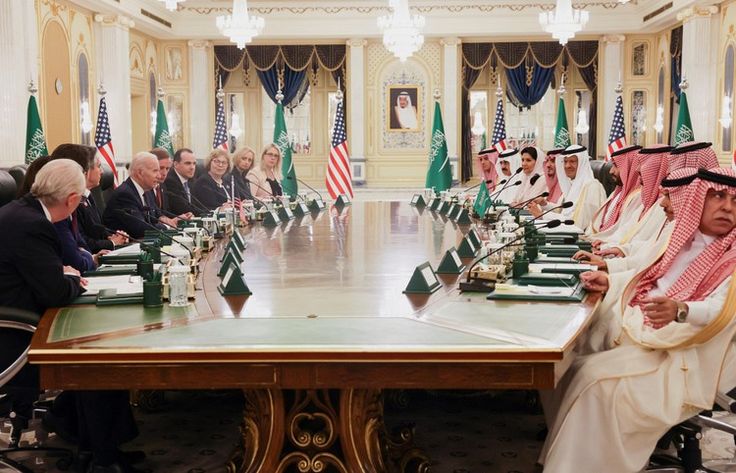
Why Saudi Arabia’s Move Matters
Unlike U.S. drillers, who have already hit record levels of production, Saudi Arabia has vast untapped oil reserves. The kingdom currently has nearly 3 million barrels per day of spare capacity, and it has historically kept much of this production offline to maintain higher prices in the market.
However, with global oil prices dipping and U.S. producers slowing down, Saudi Arabia can afford to ramp up output. This move allows the kingdom to regain some of the market share lost to U.S. shale oil in recent years, while also scoring major diplomatic points with President Trump. In essence, it’s a win-win for Saudi Arabia and the Trump administration, as both parties benefit from this temporary oil price relief.
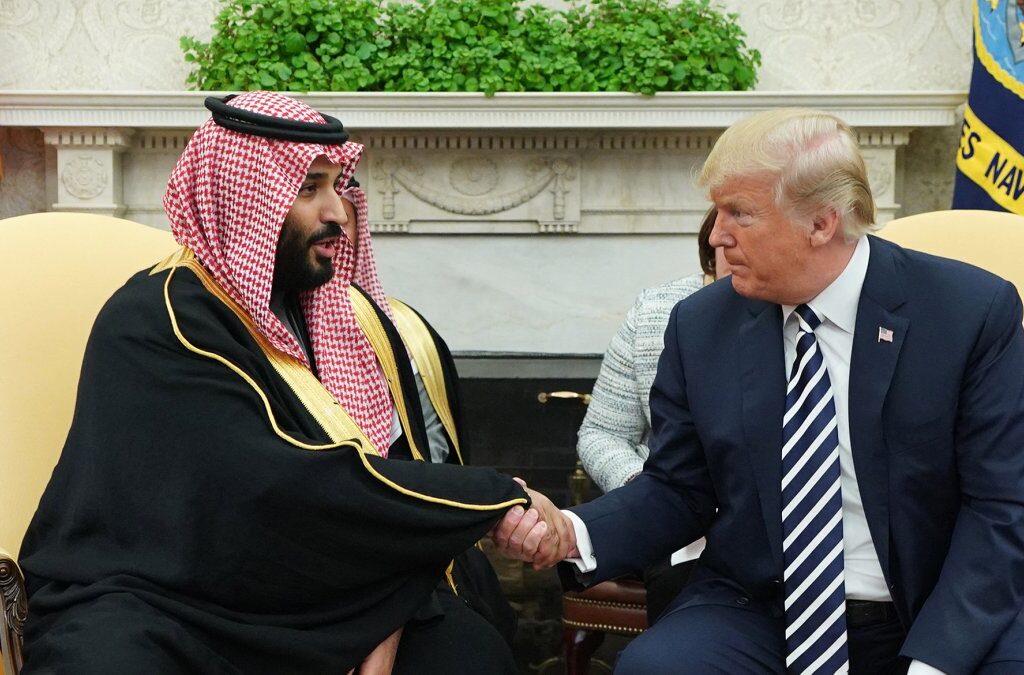
Trump’s Geopolitical Strategy: Oil, Arms Deals, and the Middle East
While the oil deal with Saudi Arabia stands out as the most immediate achievement, Trump’s Middle East strategy encompasses more than just energy concerns. Trump’s administration is committed to strengthening its economic and military ties with the Gulf states, particularly Saudi Arabia and the UAE.
Saudi Arabia, in particular, has agreed to invest a massive $600 billion in the U.S. over the next decade. This investment covers everything from energy to technology and aluminum production, and it’s part of Trump’s broader agenda to create a stronger economic bond between the U.S. and the Gulf. Additionally, arms deals and civil nuclear cooperation are also on the table, marking a multi-faceted partnership between the two nations.
Yet, Trump’s Middle East diplomacy is not without challenges. Tensions still exist in the region, particularly with Iran, which has long been a point of friction. The U.S. military presence in the region, along with ongoing conflicts in Yemen and Gaza, complicates the dynamics, but Saudi Arabia remains a strong partner for Trump’s geopolitical strategy.
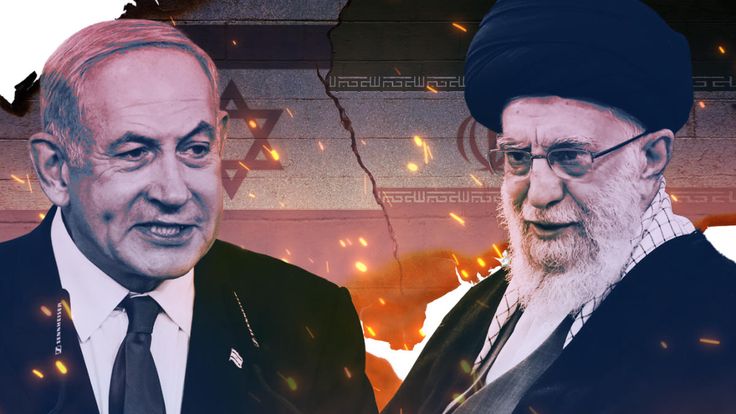
The Threat of Military Conflict: Israel’s Role and Iran’s Vulnerability
The most pressing geopolitical risk stemming from this energy-focused diplomacy is the potential for conflict with Iran. The Trump administration’s growing diplomatic efforts to resolve tensions with Tehran have been met with resistance from Israel, which remains aggressive in its stance against Iran.
Israel’s National Security Minister, Itamar Ben-Gvir, has been vocal in his calls for action against Iran’s oil facilities, recognizing that disrupting Iranian oil exports could deal a blow to the regime’s stability. Iran’s vulnerability lies not only in its nuclear infrastructure but also in its oil assets, which are critical to the survival of the regime. Israel has military capabilities to target Iran’s oil facilities, and there is growing concern that such an attack could escalate tensions in the region.
At the same time, Trump’s diplomatic efforts continue, with hopes of reducing tensions and achieving a long-term deal with Iran. However, any potential disruption to Iran’s oil exports would cause a ripple effect in the global oil market, driving prices up and potentially destabilizing the region.
Conclusion: A Strategic Win for Trump, but Challenges Ahead
Trump’s win in securing extra oil from Saudi Arabia is undoubtedly significant. It provides short-term relief for U.S. consumers and businesses, while strengthening Saudi-U.S. relations. However, the long-term stability of global oil prices remains uncertain, especially as geopolitical risks persist in the Middle East.
For Trump, the challenge lies in maintaining this economic momentum while balancing the broader geopolitical risks in the region. Saudi Arabia is a powerful ally, but Israel, Iran, and the shifting dynamics of global oil production will continue to present challenges that could shape the future of the U.S.-Saudi relationship.
Author Profile

- Li Li, associate professor and master’s supervisor at Southwest University. B.A. in English for Education from Southwest Normal University, M.A. in English Translation and Interpretation from China Foreign Affairs University, Ph. D. in Japanese Cultural History from Nankai University (all above are in China). Also has studied at Osaka Sangyo University and Kokugakuin University in Japan and been a Fulbright visiting scholar to Western Kentucky University in US. A multidisciplinary and versatile instructor with a trilingual mastery of Chinese, English and Japanese, known for Combining foreign language teaching with history and humanity cultivation. Academic researches center on Japanese history, international relations and Western culture studies. Work experiences include teaching at Capital Normal University, Chongqing Normal University, and Southwest University. Has published multiple academic papers, translated works, authored or co-edited several textbooks and monographs; provided language services for several high-level and high-profile international events.
Latest entries
 PoliticsSeptember 7, 2025Japan’s Prime Minister Shigeru Ishiba Resigns Amid Election Defeats:What’s Next for Japan?
PoliticsSeptember 7, 2025Japan’s Prime Minister Shigeru Ishiba Resigns Amid Election Defeats:What’s Next for Japan? GeopoliticsAugust 22, 2025The Limits of Russia’s Friendship: Moscow’s Calculated Response to the Iran Crisis
GeopoliticsAugust 22, 2025The Limits of Russia’s Friendship: Moscow’s Calculated Response to the Iran Crisis Japanese PoliticsJuly 22, 2025Japan’s Upper House Election: Prolonged Instability and Its Impact on Domestic and Foreign Policy
Japanese PoliticsJuly 22, 2025Japan’s Upper House Election: Prolonged Instability and Its Impact on Domestic and Foreign Policy Middle East AffairsJuly 20, 2025Will Israel Ever Face Consequences for Bombing Its Neighbours?
Middle East AffairsJuly 20, 2025Will Israel Ever Face Consequences for Bombing Its Neighbours?

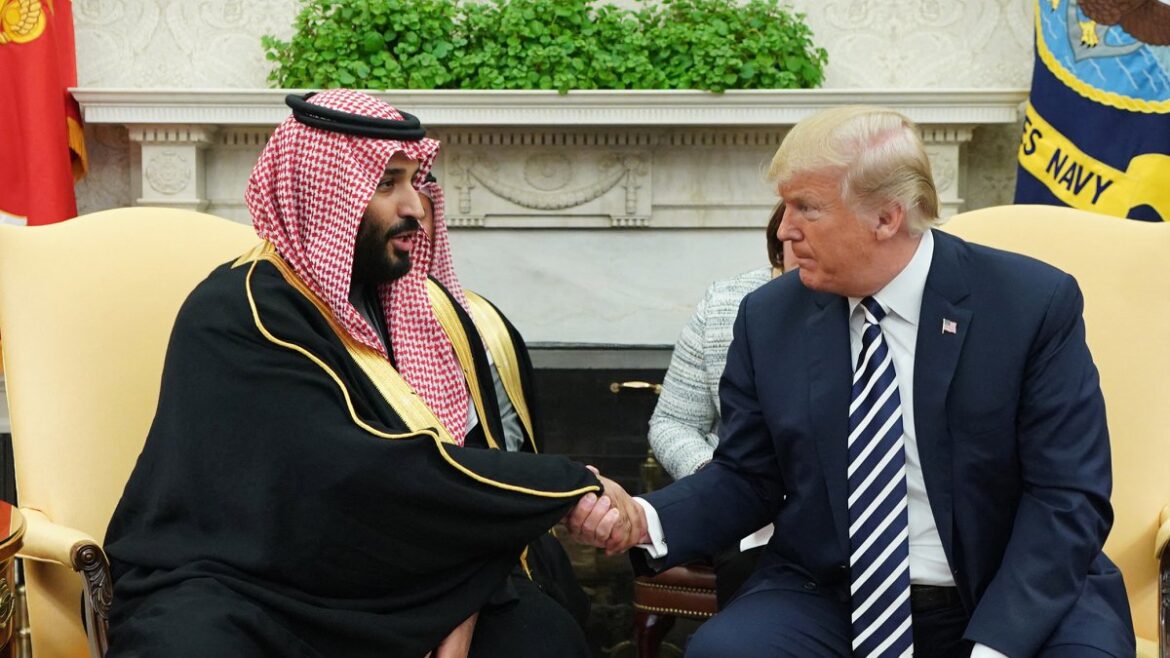

9 comments
Okay, but why did this resonate with me so hard? You nailed it!
It’s in reality a nice and useful piece of information. I am satisfied that you simply shared this helpful info with us. Please keep us informed like this. Thanks for sharing.
You are a very smart person!
Very interesting subject, thank you for posting.
hey there and thanks on your info – I have certainly picked up anything new from right here. I did on the other hand expertise a few technical issues the usage of this site, since I skilled to reload the site lots of occasions previous to I could get it to load correctly. I were thinking about if your web host is OK? No longer that I am complaining, however sluggish loading cases times will sometimes impact your placement in google and could harm your quality score if ads and ***********|advertising|advertising|advertising and *********** with Adwords. Anyway I’m including this RSS to my e-mail and could glance out for a lot more of your respective intriguing content. Make sure you update this once more very soon..
Wow that was unusual. I just wrote an really long comment but after I clicked submit my comment didn’t show up. Grrrr… well I’m not writing all that over again. Anyways, just wanted to say excellent blog!
Very interesting points you have remarked, thanks for posting.
Woh I like your articles, saved to fav! .
**mitolyn official**
Mitolyn is a carefully developed, plant-based formula created to help support metabolic efficiency and encourage healthy, lasting weight management.